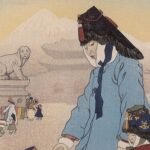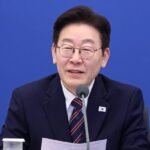Rendering image of VL Lewest, a luxury senior living community under development by Lotte Hotels & Resorts in Seoul, South Korea (Courtesy of Lotte Hotels &Resorts)
Elder-care startups are rushing to build high-end senior homes in South Korea targeting affluent Generation Xers set to retire in five years on expectations of high demand for luxury senior lifestyle in the rapidly aging country with a constrained supply of senior living infrastructure.
Caredoc, a Korean startup offering senior care services, announced on Tuesday that it forged a partnership with the Korean operation of Inspired Healthcare Capital (IHC), a US company managing 40 senior living assets valued at more than $1.5 billion in the US, to build senior living communities catering to the wealthy Korean elderly.
The two companies plan to develop a senior town in Korea, fitted with high-end, six-star hotel-like living amenities to lure Generation Xers in their 50s and 60s with great spending power.
Generation X refers to those born between 1965 and 1979, and the oldest group in the generation is set to retire in the next five years. They are expected to be the next group of wealthy retirees following the Baby Boomers in Korea.
Caredoc is the latest startup in Korea rushing to the privately funded senior housing market set to bloom upon the retirement of the Gen X population.
Caredoc’s senior care service app (Courtesy of Caredoc)
Caring Co. in April also signed a memorandum of understanding (MOU) with SDAMC, a local property developer behind the luxury senior community project in Magok, western Seoul, to develop a new senior living community.
Local Stitch, a Korean co-living startup, also plans to open senior living facilities for Gen X retirees.
LIMITED SUPPLY TO CREATE NEW MARKET
Besides startups, many companies in Korea are also pinning high hopes on the senior housing market with expectations of great growth potential.
Asia’s fourth-largest country is set to become a super-aged nation given the plunge in the country’s fertility and birth rates.
The number of people aged 65 or over is expected to top 10 million this year in Korea, entering an era in which 20% of the population is a senior citizen, according to Statistics Korea.
At the current pace, Korea is expected to become the world’s most-aged country with half of its population 65 or older by 2070, government data showed.
But the country lacks care and living infrastructure for the elderly as it has relied heavily on public welfare facilities managed under Korea’s Senior Welfare Act.
Following the retirement of the affluent Generation X population, demand for diverse senior living facilities meeting different demands is, however, expected to grow rapidly, which will pave the way for expanding the privately funded senior housing market.
Startups’ bigger rivals like major Korean conglomerates have already stepped up their efforts to lead the private, premium senior housing market.
Lotte Hotels & Resorts is building a luxury residential town for retirees in Seoul with a plan to complete it by 2025.
Samsung Life Insurance’s public welfare foundation runs a premium senior community in Yongin near Seoul.
Other insurance companies including Shinhan Life, KB Life Insurance and NH Life Insurance also announced plans to enter the market.
By Eun-Yi Ko
koko@hankyung.com
Sookyung Seo edited this article.















